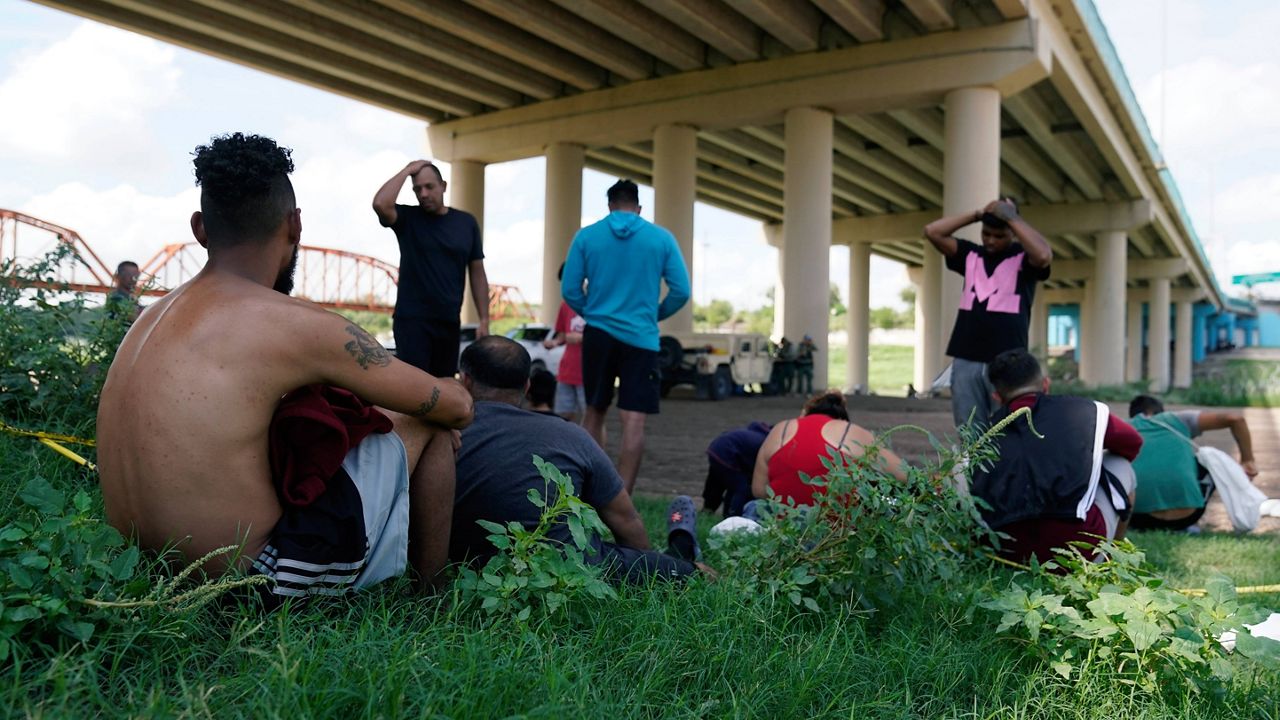The rising number of Venezuelans seeking entry into the U.S. has contributed to the record number of immigration arrests. Over the last year, there has been an influx of immigrants crossing along the southern border, with numbers in the millions.
Many are passing through border patrol sectors in Texas, and that has affected local resources. Experts point to the economic turmoil in Venezuela which has forced many to leave the country and they don’t expect the exodus to slow soon.
One Venezuelan man in El Paso, Texas, told Spectrum News that his "country is going through a very rough economic crisis."
"There isn't work; one wants to maintain a family and they can't," he said. "They're living very badly.”
More than 25,300 Venezuelans crossed into the U.S. from Mexico in August, surpassing Guatemalans and Hondurans to become the top nationality stopped at the border after Mexicans. That number is up 43% from July, and is four times the 6,300 encounters in August of last year.
Many pass through the border patrol’s El Paso and Del Rio sectors. The journey into America is often dangerous, stretching across thousands of miles and, in some cases, several months.
“Part of the reason that we're seeing this increase in irregular migration, so people coming here, trying to cross the southern border irregularly, is that there aren't opportunities to get here via any regular routes,” said Kelsey Norman, director of the Women's Rights, Human Rights and Refugees Program at Rice University’s Baker Institute.
"Unless there's opportunities for them to come, whether for work or for education, or to be resettled here, it's unlikely that we'll see a slowing of this pattern of people arriving at the southern border," Norman added.
The economic and political crises that have battered Venezuela since the presidency of Hugo Chavez have worsened under the dictatorship of Nicolas Maduro.
More than 6 million people have fled Venezuela, which has been subject to crippling economic sanctions that began under President Donald Trump. Because of strained relations with the U.S., it has been difficult to expel Venezuelan migrants under the pandemic-era order known as Title 42.
“It's important to shift away from the paradigm that migration and the solution to any type of migration crisis is something that needs to happen at the border," Diego Chavez-Gonzalez, senior manager for Latin America and The Caribbean, Migration Policy Institute, told Spectrum News. "Once the migrants are at the border, you already have a problem that you need to solve in a different way.”
Chavez-Gonzalez says this "demands a regional effort that not only one country should solve all the issues," adding: "A collective effort by many countries" should be underway to address and "understand the different silos and problems."
Some lawmakers have called for expanding Temporary Protected Status to Venezuelans who’ve recently arrived in the U.S., which would shield them from deportation and allow them to receive work permits. Others have floated the idea of increasing aid packages to other countries hosting Venezuelans.
“Since the pandemic, the economies of those previous host countries have worsened. Some of the more welcoming policies that were in place towards Venezuelans previously are no longer in place. And so individuals are more desperate than they were before,” Norman said.
Federal officials blame the regime in Venezuela, as well as those in Cuba and Nicaragua, for driving the recent surge in migration. They acknowledge that Washington’s strained relations with those regimes make it difficult to reduce the number of people seeking to come to the U.S.



